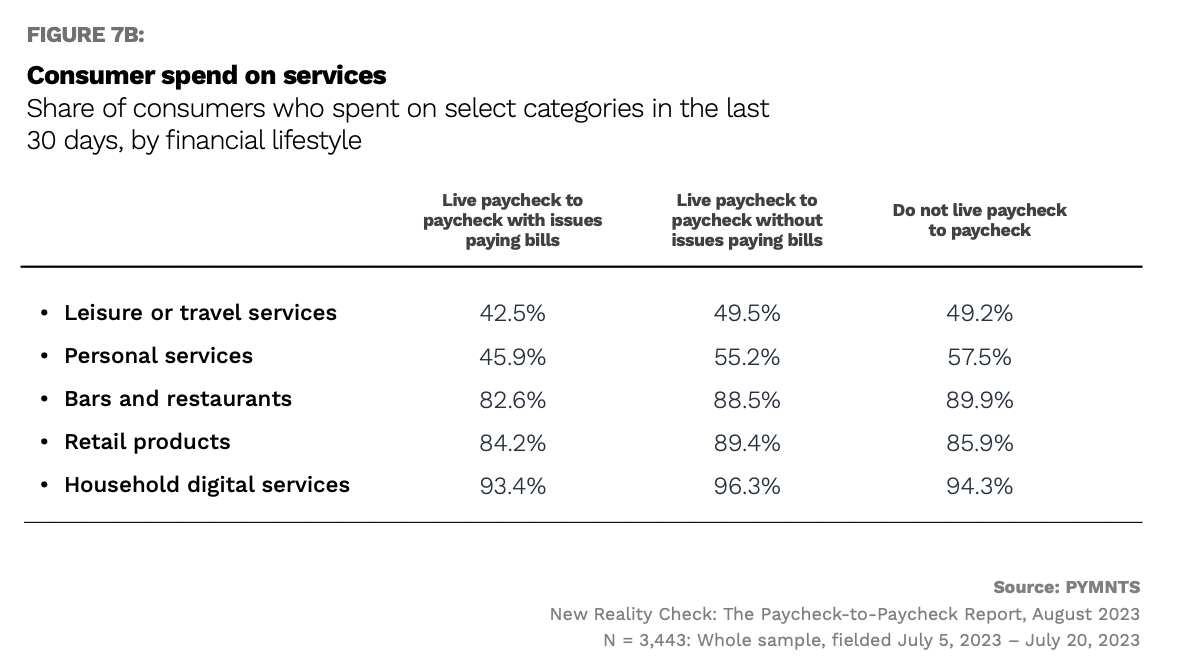Even Financially Struggling Consumers Continue to Dine Out

Rising menu prices and overall economic pressures may continue to weigh heavy on consumers, but even those who have difficulty getting by are still willing to spring for restaurant meals.
By the Numbers
For the latest installment of PYMNTS’ series “New Reality Check: The Paycheck-to-Paycheck Report,” a PYMNTS and LendingClub collaboration, “The Nonessential Spending Deep Dive Edition,” we surveyed a census-balanced panel of more than 3,400 U.S. consumers in July about how they are spending on nice-to-have purchases, among other matters.
The results revealed that, across all financial lifestyles, consumers continue to frequent bars and restaurants. It is not particularly astonishing that 90% of those who do not live paycheck to paycheck report having spent on bar or restaurant purchases in the previous 30 days, nor that 89% of those who live paycheck to paycheck without issues paying bills said the same.
More notable is that the vast majority — 83% — of those who live paycheck to paycheck with issues paying bills reported having spent money at a bar or restaurant in the same period.

The Data in Context
These findings support the assertion earlier this year of Restaurant Brands International (RBI), parent company of Burger King, Tim Hortons, Popeyes and Firehouse Subs, that as long as consumers have jobs, they continue to eat at quick-service restaurants (QSRs).
“In terms of what the key drivers are … I think the biggest one really is employment,” RBI CEO Josh Kobza said on a call with analysts in May. “That’s really what drives our guests — having money in their pockets and being out and about. That is probably the highest correlation item that we see towards our sales and traffic. And the fortunate thing is that employment in the U.S. continues to be really good.”
Similarly, on an earnings call in the spring, Darden Restaurants, parent company of casual dining chains Olive Garden and LongHorn Steakhouse in addition to a handful of fine dining brands, stated that it is seeing consumers continue to dine out despite cost pressures.
“There is a tension between what people want and what they can afford,” Darden CEO Rick Cardenas said. “Consumers continue to seek value, which is not about low prices. Consumers are making spending trade-offs, and food away from home is one of the most difficult expenses to give up because going out to a restaurant is still an affordable luxury for them.”